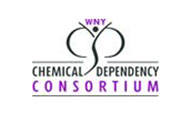Erie County New York Addiction Hotline
Erie County NY Substance Abuse Treatment Hotline
Substance Abuse Statistics Erie County New York
Substance abuse is a significant issue in Erie County, New York. According to recent statistics[1], the majority of overdose deaths in the county this year have been linked to cocaine, with heroin also being a commonly abused substance[2]. These statistics are part of a larger trend of increasing opioid-related deaths in the state, with a 68% rise in such deaths from 2019 to 2021[3]. Since the opioid crisis began in Western New York in 2014, approximately 2,000 county residents have died of drug-related overdoses[4]. These statistics highlight the urgent need for effective substance abuse prevention and treatment programs in the county.
The impact of substance abuse extends beyond individual users and their families, affecting the broader community as well[5]. Substance abuse can lead to increased crime rates, decreased productivity, and strained healthcare resources. Erie County Central Police Services performs forensic analysis of substances from fatal and non-fatal overdoses, providing valuable data on the scope and nature of substance abuse in the county[6]. This data can inform the development of evidence-based prevention and treatment strategies, as well as help to identify trends and patterns in substance abuse.
Commonly abused substances in Erie County include opioids, cocaine, and heroin[1]. However, substance abuse is a complex issue with many contributing factors, including poverty, trauma, and mental health issues[7]. Comprehensive data and information on substance abuse in Erie County is available through the county’s Opiate Epidemic Task Force website[8]. This website provides resources for individuals seeking help with substance abuse, as well as information for healthcare providers, law enforcement, and community organizations. By addressing the root causes of substance abuse and providing effective prevention and treatment programs, Erie County can work towards reducing the negative impact of substance abuse on the community[9].
References
1. WNY opioid overdose deaths on the rise due to fentanyl …. from www.wgrz.com
2. Study: Narcan revived 653 opioid overdose victims in Erie …. from www.buffalo.edu/news/releases/2017/10/004.html
3. Overdose fatalities in New York surged during the …. from www.wgrz.com
4. Overdose deaths in Erie County reach new record high as …. from buffalonews.com
5. Continuing Crisis: Drug Overdose Deaths in New York. from www.osc.ny.gov
6. ERIE COUNTY OFFICIALS PRESENT NEW DATA …. from www2.erie.gov
7. Substance Use Related Research Articles. from www3.erie.gov/health/substance-use-related-research-articles
8. Opioid-related Data in New York State. from www.health.ny.gov/statistics/opioid/
9. Data & Statistics | Erie County Department of Health (ECDOH). from www3.erie.gov/health/data-statistics

Erie County New York Addiction Treatment Resources
Erie County New York Government Addiction Treatment Guide

Erie County New York WNY Chemical Dependency Consortium
Erie County New York WNY Chemical Dependency Consortium. The mission of the Western New York Chemical Dependency Consortium is to assist in the development of a high-quality, accessible, cost-effective and wrap-around continuum of care system and represent prevention, treatment, recovery, education, housing, training, and research services. Each year, the Western Regional Addiction Resource Collaborative, through funding from NY State OASAS, is looking to support high-risk outreach efforts to local communities in need in the five target counties (Erie, Niagara, Allegany, Chautauqua, and Cattaraugus).

Addiction Prevention Council Erie County New York
Addiction Prevention Council Erie County New York. Adults and community members can benefit from a range of programs available through The Prevention Council. Forums, sessions and other programs work to inform members of the community about the importance of educating children, teenagers and young adults about the dangers of drugs, alcohol and tobacco use, while other courses can help intervene in the lives of those who have problems with substance abuse to help them make healthier, positive choices. Learn about the full range of our programs below.

